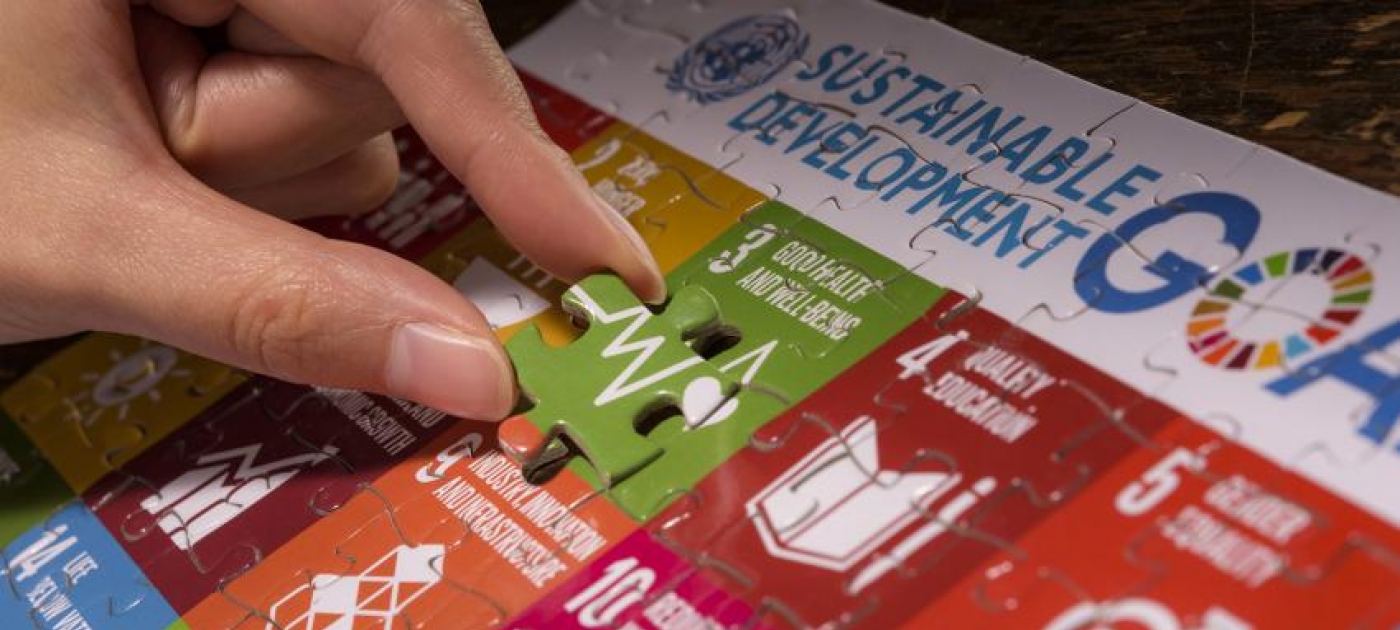

UNEP is the custodian agency for 25 core environment indicators for Goals 6, 8, 12, 14, 15, and 17 in the global framework for the 2030 Agenda. General Assembly Resolution A/RES/71/313 on Work of the Statistical Commission pertaining to the 2030 Agenda for Sustainable Development states the role of Custodian Agencies as (1) providing the methodologies used to harmonize country data for international comparability and produce estimates through transparent mechanisms, and (2) supporting the strengthening of data collection and statistical capacity-building, including capacity-building that strengthens coordination among national statistical offices, as appropriate and within their mandates, in a coordinated manner that recognizes national priorities and reflects national ownership of the implementation of the 2030 Agenda for Sustainable Development.
This project contributes to one indicator of each of the subprogrammes Science and Policy, Climate Action, Nature Action and Chemicals and Pollution Action.
The project puts in place the following to achieve its objective:
To achieve the objective, it leverages expertise across and beyond the UN System, including the Secretariat entities, UNEP, UNSD, the Regional Commissions, and other UN Agencies. It also works in collaboration with other partners such as scientific institutes to improve synergies and maximize the impact.
UNEP, with funding from the European Commission, is implementing a project to enhance countries' capacities for measuring progress on the transition towards a circular economy. The project initiated in January 2024, with a planned implementation period of three years.
This project aims to accelerate the transition towards a circular economy in the context of sustainable development by focusing on three areas: (i) development or enhancing methodologies at the global level, (ii) regional capacity building and dialogue between data users and producers, and (iii) enhancing national statistical capacities. The project also encourages internal capacity building within countries, emphasizing knowledge sharing to ensure sustainability. The ultimate goal is to inform evidence-based policies by regularly producing circular economy and waste datasets.
The deliverables of this project contain guidelines for measuring circular economy, regional workshops, national capacity building activities, and the development of methodology and guidelines for one selected waste stream, including pilot testing, dissemination and uptake.
The project is being implemented by eight UN entities: five Regional Commissions, such as ECA, ECE, ECLAC, ESCAP, ESCWA, and three global entities: UNEP, UNODC and UNSD, under the 14th tranche of the United Nations Development Account.
The objective of the project is to strengthen the capability of NSS of target countries to collect, process and disseminate data and statistics to inform COVID-19 recovery policy, and to enhance the resilience and agility of NSS of beneficiary countries to respond to emerging economic, social and environmental data needs in times of crises and disasters through the use of innovative data sources, advanced data acquisition methods and modern technologies, while ensuring a path towards the achievement of the 2030 Agenda.
The project includes six workstreams on different areas of statistics, of which UNEP co-leads two: Workstream 2.1 on Climate Change and Disaster-related Statistics, and Workstream 2.4 on Assessing the Impact of the Economy on the Environment.
This project leverages expertise across and beyond the UN System, including the Secretariat entities, UNEP, UNSD, the Regional Commissions, and other UN Agencies but also working in collaboration with other partners such as GRID and UNEP Collaborating Centres to improve synergies and maximize the impact.
From 2020 to 2023, the United Nations Environment Programme (UNEP) implemented the project on Enhancing Capacity for Measuring Progress towards the Environmental Dimension of the Sustainable Development Goals (SDGs), funded by the European Commission. The project aimed to strengthen national capacity for designing coherent and integrated policies for sustainable development, monitoring, and reporting on the environmental dimension of the SDGs.